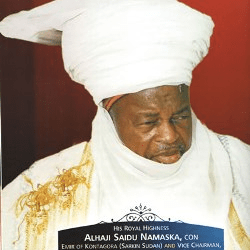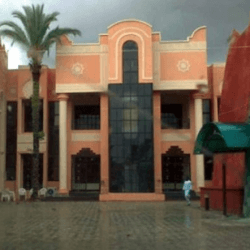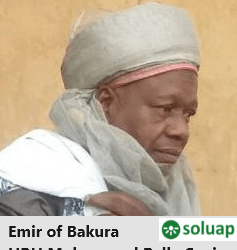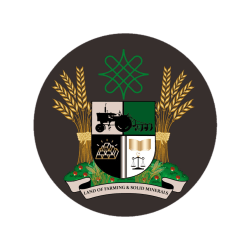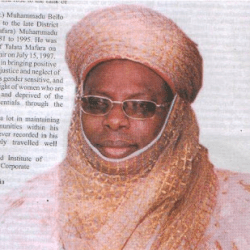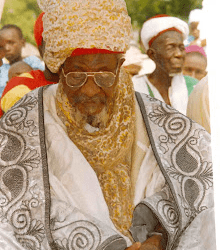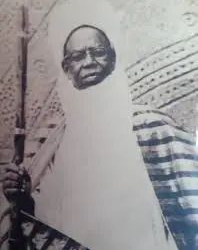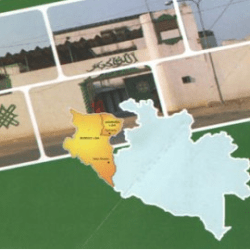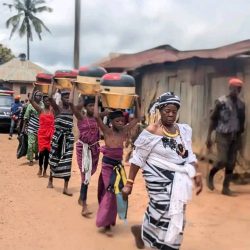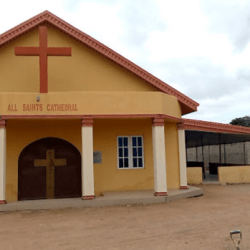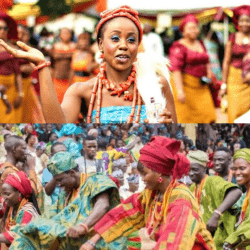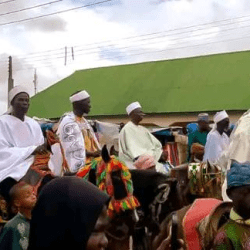Alhaji Haliru Dantoro was born in 1938 at old Bussa. He commenced his early education at old Bussa Elementary school from 1945 to 1949, from where he proceeded to Pakata Elementary school ILorin in 1950 as well as Baboko Senior Primary School from 1950 to 1953.

Alhaji Dantoro had his secondary education at provincial secondary school, formerly called Ilorin Middle School from 1953 to 1955. He later went to the institute of Administration, Zaria for clerical course between 1956 and 1957.
The first class emir commenced his working career as Council Secretary to Borgu Native Authority from 1957 to 1958. To further his educational career, Alhaji Dantoro returned to the Institute of Administration, Ahmadu Bello University between 1959 and 1961 and upon completion was appointed secretary to Borgu Local Government from 1962 to 1964.
Alhaji Haliru Dantoro became a Councillor for Local Government Judiciary, Prison and Police Affairs in Borgu Native Authority before he was appointed as part-time Chairman of Kwara State Scholarship board in 1970. Subsequently, he was appointed Kwara State Commissioner for Agriculture and Natural Resources in 1971, where he established Kwara State Agricultural Development Cooperation; Makers of “Eagle Rice” and others.
In a cabinet reshuflement he was moved to Kwara State Ministry of Finance in 1973 and later to Ministry of Trade and Industries in the same capacity. As an astute administrator who had served the state diligently, Alhaji Dantoro was severally nominated part-time Chairman to various parastatals in Kwara State before he finally joined politics in 1976. He contested and won chairmanship seat of Borg u Local Government council. During his tenure, the Local Government won Governor’s Award of the best council in the state.
In 1977 he was appointed chairman of one of the newly created River Basin Development Authorities by the then Head of State, General Olusegun Obasanjo. Later in 1979, Dantoro was an aspirant at the NPN primary election, until he was persuaded to step down and later became NPN party chairman in the State.
Alhaji Dantoro was at a time, Minister of the Federal Capital Territory, Abuja until the change of government on 31st December, 1983 by the military, He was later re-appointed chairman of Kwara State Printing and Publishing Corporation for the second time in 1990, by Col. Alwali Kazir, the then Military Governor of Kwara State.
After the merger of Borgu to Niger State, Alhaji Haliru Dantoro was appointed member, Niger State Social and Economic Council, and later in 1993 he became chairman, Borgu Community Bank. He was elected as a senator of the Federal Republic in 1993 under N.R C. party.
Alhaji Haliru Dantoro was appointed 1st Class Emir of Borgu by His Excellency, the Executive Governor of Niger State, Engr. A.A. Kure, after the supreme court ruling on 14th May, 2004.
He is conferred with the National Award of the Commander of the Order of Niger (CON)
He is married with children and grandchildren. His hobbies include reading, horse riding and traveling.
Niger
Niger is a State located in central Nigeria and its capital city is Minna.
Other top cities in Niger State include Bida, Suleja and Kontagora.
The State has an expansive land area and it’s close to the nation’s capital, Abuja.

Creation: It was created out of the defunct North Western state on 3rd February, 1976.
Location: Situated in the North central geo-political zone.
Administrative areas: The State comprises 25 Local Government Areas grouped into 3 administrative zones: A, B, C with each zone having 8, 9 and 8 Local Government Areas (LGAs) respectively.
List of Local Government Areas
Niger State has 25 Local Government Areas, namely:
- Agaie
- Agwara
- Bida
- Borgu
- Bosso
- Chanchaga
- Edati
- Gbako
- Gurara
- Katcha
- Kontagora
- Lapai
- Lavun
- Magama
- Mariga
- Mashegu
- Mokwa
- Munya
- Paikoro
- Rafi
- Rijau
- Shiroro
- Suleja
- Tafa
- Wushishi
Local Government Areas and their headquarters
The Local Government Areas in Niger State and their headquarters are:
| SN | LGA | HEADQUARTERS |
| 01 | Agaie | Agaie |
| 02 | Agwara | Agwara |
| 03 | Bida | Bida |
| 04 | Borgu | New Bussa |
| 05 | Bosso | Maikunkele |
| 06 | Edati | Enagi |
| 07 | Gurara | Gawu Babangida |
| 08 | Gbako | Lemu |
| 09 | Katcha | Katcha |
| 10 | Kontagora | Kontagora |
| 11 | Lapai | Lapai |
| 12 | Lavun | Kutigi |
| 13 | Mariga | Bangi |
| 14 | Mokwa | Mokwa |
| 15 | Magama | Nasko |
| 16 | Mashegu | Mashegu |
| 17 | Munya | Sarkin Pawa |
| 18 | Paikoro | Paiko |
| 19 | Rafi | Kagara |
| 20 | Rijau | Rijau |
| 21 | Shiroro | Kuta |
| 22 | Suleja | Suleja |
| 23 | Tafa | Sabon-Wuse |
| 24 | Wushishi | Wushishi |
| 25 | Minna | Minna |
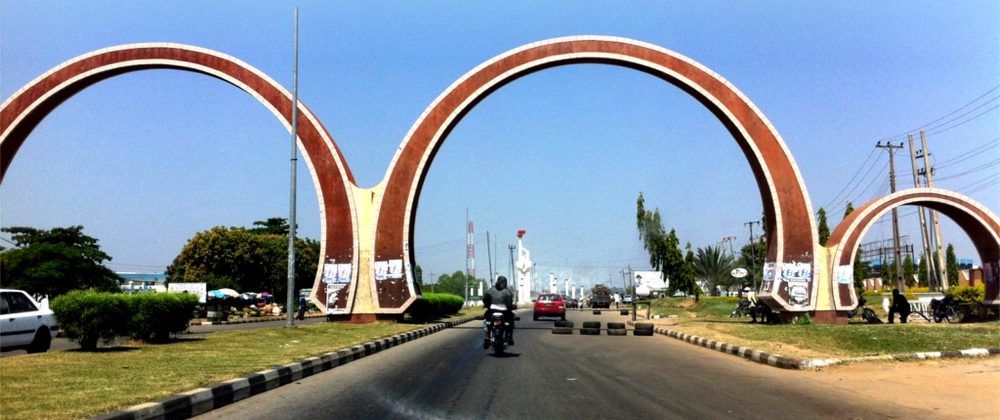
Boundaries: Niger State shares its borders with republic of Benin (West), Zamfara State (North), Kebbi (North-West), Kogi (South), Kwara (South West), Kaduna (North-East) and the FCT (South-East).
Land area, the largest among Nigerian states: Niger State is one of the largest states in Nigeria covering about 86,000km2 (or about 8.6million hectares) representing about 9.3% of the total land area of the country.
Major rivers: Niger State’s major rivers are: Niger, Kaduna, Gbako, Eko, Gurara, Ebba, Ega, Mariga and their tributaries.

Fishes: The common fishes found in these rivers are: Nile Perch (Lates) Trunck fish, Cat fish, Osteoglosid, Tilapia, Synodontis, Tiger fish, Moon fish, Mormyrid and Electric fish. By the 2006 census, the State’s population is 3,950,249 comprising 2,032,725 males and 1,917,524 females.

Ethnic groups: The easily identifiable major ethnic groups are Nupes, Hausa, Gbagyi, Kadara, Koro, Bassa, Kamuku, Ingwai, Fangu, Kambari, Dukkawa, Fulani, Abewa, Bisan, Gungawa, Bauchi, Bariba, Urah, Boko, Bokobaro, Bauchnu, Achifawa, Dakarkari, Kakanda, Ganagana, and Dibo and numerous non native tribes.
Economic activities: The major economic activity is agriculture: farming, fishing, and cattle rearing.
The other economic activities (though limited in scale) include banking, trading, transportation, local arts and crafts with Bida, the heart land of the Nupes, famous for its brass work. These activities constitute the means of livelihood of the people of Niger State in addition to public service.
Reference: nigerstate.gov.ng/about-niger

